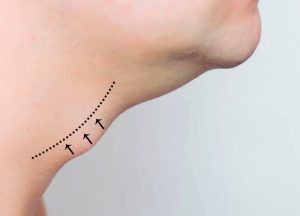 At the time of this writing, the Tennessee state government had made headlines across the world that healthcare providers should pay attention to not only for ethical considerations, but also for professional ones. One amendment of the new public health law signed by Governor Bill Lee on March 2, 2023, read as follows:
At the time of this writing, the Tennessee state government had made headlines across the world that healthcare providers should pay attention to not only for ethical considerations, but also for professional ones. One amendment of the new public health law signed by Governor Bill Lee on March 2, 2023, read as follows:
Explore This Issue
August 2023As introduced, prohibits a healthcare provider from performing on a minor or administering to a minor a medical procedure if the performance or administration of the procedure is for the purpose of enabling a minor to identify with, or live as, a purported identity inconsistent with the minor’s sex (https://wapp.capitol.tn.gov/apps/BillInfo/Default.aspx?BillNumber=HB0001).
The “healthcare provider” cited here includes, but isn’t limited to, otolaryngologists and any facilities that participate in this type of care. This includes, but isn’t limited to, feminizing or masculinizing facial surgery and pitch alteration surgery.
If harm results from the care, the lawsuit could name the otolaryngologist or the consenting parent—and the suit can be filed within 20 years of the violation. For reference, the typical medical malpractice claim statute of limitation is two years from the date of injury.
The lack of support and increasing barriers to care for the transgender community has already been shown to be harmful—even deadly—with more than 50% of transgender youth experiencing severe depression and over 40% admitting to self-harm or suicidal ideation.
Penalties include disgorgement of profits received from the procedure and a civil penalty of $25,000 per violation. One amendment to the bill made sure to include even “a minor located in Tennessee via telehealth,” meaning the minor doesn’t need to actually be a Tennessee resident—they just need to be located in the state while discussing this form of care virtually. (The bill carved out an exception for psychological practice, professional counseling, and social work.)
Of note, they justified these regulations under the guise that these procedures harm public health, safety, and welfare. Reality is far from this justification, however:
- According to Tennessee’s published statistics, the two leading causes of death in 2020 for ages 1 to 14 years were “accidents and adverse events” and “assault (homicide)” (General Health Data: Death Statistics. Tennessee Department of Health. https://www.tn.gov/health/health-program-areas/statistics/health-data/death-statistics.html)
- In 15 to 24 year olds, the three leading causes of death in 2020 were “accidents and adverse events,” “assault (homicide),” and “suicide” (ibid). Unfortunately, evidence shows that the transgender population suffers higher suicide and physical violence rates.
The Question of Suicide
The Tennessee Department of Health: Suicide Prevention Report was published in 2021 in response to a 13% increase in suicide from 2015 to 2019 (Tennessee Depart of Health: Suicide Prevention Report. Tenn. Dept. Health. 2021. https://www.tn.gov/content/dam/tn/health/program-areas/vipp/2021-Suicide-Annual-Report.pdf). Firearms were the leading mechanism. In the report, it specifically identifies the LGBTQI+ community as a “high-risk population.”